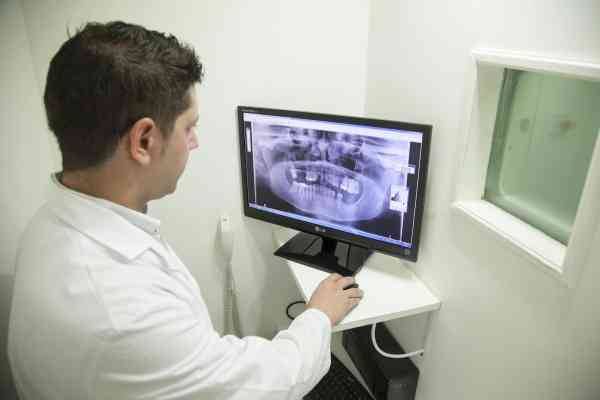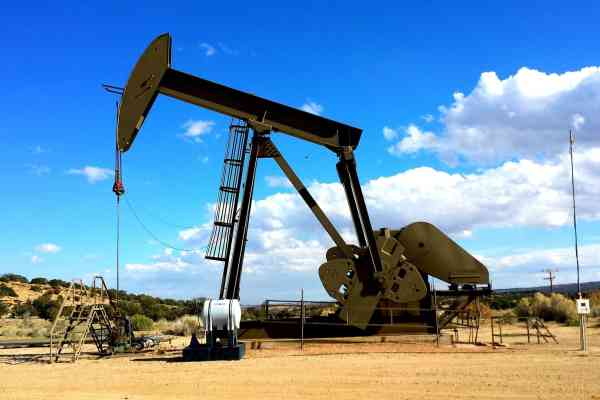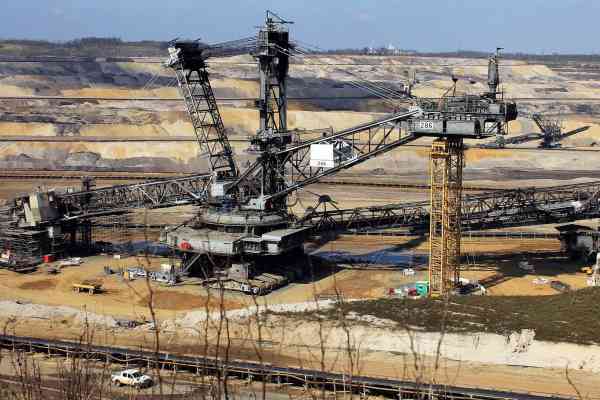Born in Munich, he first studied economics and graduated in business administration at the Ludwig-Maximilians-University in 1995. As he was involved with the stock market at a very early stage, he now has more than 30 years of experience in the capital markets. In the historic dot.com year 2000, he trained as a CEFA analyst in Frankfurt and has since then accompanied over 20 IPOs in Germany.
Until 2018, he held various positions at banks as an asset manager, capital market and macro expert as well as fundamental equity analyst. He is passionate about the energy, commodity and technology markets as well as the tactical and strategic asset allocation of liquid investment products. As an expert speaker at investment committee meetings of funds as well as at customer events, he can still describe the course of the 1987 crash, one of the major buying opportunities of the last 33 years on the stock market.
Today, he knows that the profit in shares is not necessarily the result of buying cheaply, but above all of avoiding mistakes and recognizing in good time when markets are ready to let air out. After all, in addition to basic fundamental analysis, investing in stocks is above all a phenomenon of global liquidity and this must be monitored regularly.
Commented by André Will-Laudien
Commented by André Will-Laudien on March 3rd, 2021 | 10:22 CET
Kleos Space, Raytheon, Boeing - Only flying is more beautiful!
Whether on land, in the air or on the water - people's movement data is now collected and analyzed in various ways. A wide variety of companies are now scrambling for the Big Data pie, which is continually being generated through the use of cell phones, cars and other devices linked to the Internet. Worldwide, 0.5 zettabytes of data are produced every day. In the meantime, the Internet has become ubiquitous and we now fear that we will no longer be able to cope with the amount of information. An appropriate metaphor for this is the flood of data we are exposed to every day at our desks and on the road. But one thing is certain: the big machines can handle our data brilliantly and draw their conclusions.
ReadCommented by André Will-Laudien on March 2nd, 2021 | 11:15 CET
Q&M Dental, Pfizer, BioNTech, Teva: Watch out for these pharma picks!
The COVID pandemic has permanent surprises in store, which strongly influence our daily life. The province of Tyrol was sealed off entirely 2 weeks ago. The Czech Republic is being helped out with vaccine doses because the incidence figures are going through the roof. In Germany, hairdressers and DIY stores have been allowed to open again. Gradually, everyday life is returning to normal, but it will probably take some time before we regain the quality of life of the pre-Corona years. Let's take a closer look at various business models in the healthcare industry to get a feel for what's next.
ReadCommented by André Will-Laudien on March 1st, 2021 | 10:05 CET
JinkoSolar, NIO, Almonty - Rare metals, these are the buying opportunities!
The Purchasing Managers' Index (EMI) for the manufacturing sector in China measures the industrial sector's current situation. In the financial markets, this survey of purchasing managers and company heads is considered one of the most influential economic indicators because it shows the country's economic performance from several angles at an early stage. Yesterday, Sunday, this index came with a value of 50.6 - expected was 51.1, the last value was 51.3. If you think in categories of an imminent recovery to Corona, you will be slightly disappointed with this figure. After all, a value below 50 indicates recessionary tendencies - and China is not far from this mark.
ReadCommented by André Will-Laudien on February 26th, 2021 | 08:25 CET
REVEZ, Alibaba, Tencent: Digitization Made in Asia!
Rumors are swirling about the strange short-squeeze. Some politicians in the US suspect Chinese Internet giants behind the GameStop hype. Even under Donald Trump, attempts had been made to ban Tencent's wonder app WeChat in the US. Even a ban on buying the stock for US investors was discussed at times. But then, fortunately, the decision was made in favor of the principles of the free market economy. After all, the discussion also coincided with the handover of office to Biden. Whether Biden will follow a similarly challenging course with China as his predecessor remains an open book because there are few foreign policy pronouncements at present.
ReadCommented by André Will-Laudien on February 25th, 2021 | 11:43 CET
BIGG Digital Assets, Palantir, Baidu: Crypto and Big Data - invest in the future!
The crypto world is evolving rapidly and with volatility. The latest continuous firing is now coming from big companies like Tesla, who are using the run on cryptocurrencies as a marketing tool to serve their own purposes. Elon Musk must now be called the "Magician of the Markets." He is the dazzling entrepreneur who throws entire industries into turmoil. His flagship Tesla is now investing proprietary money in Bitcoin, and at the same time, buying a Tesla vehicle using Bitcoin is possible. The perfect ring closure in a market that just can't seem to settle down. We take a look at companies that are making good progress with the crypto world and the topic of Big Data so far.
ReadCommented by André Will-Laudien on February 24th, 2021 | 08:29 CET
Saturn Oil & Gas, Royal Dutch Shell, BP, Plug Power - The oil specialists!
Oil prices are currently moving at the upper edge of the annual range. In the case of oil, market participants expect a pioneering indication of the economy's state after Corona. Price buoyancy came once again from the US, where freezing winter weather led to logistical problems in the oil supply. There is a general trend of rising commodity prices, and successively all segments are affected. Commodity experts at the US investment bank Goldman Sachs expect oil prices to rise further in the coming months. Accordingly, the Brent price could rise to USD 70 per barrel in the second quarter and reach USD 75 in the summer months. Goldman Sachs has thus raised its previous forecast by USD 10 per barrel.
ReadCommented by André Will-Laudien on February 23rd, 2021 | 09:25 CET
wallstreet:online, TeamViewer, HelloFresh - Internet Boom 3.0, the list of winners!
When the dotcom boom took its course at the turn of the millennium, many immature and unpromising business models came onto the market. Over time, the winners established themselves and delivered their proof of concept. Working models and mobile applications revolutionized the application layer - the Internet became ubiquitous, useful and offered many complementary applications for daily life. A selection of companies are now riding the third wave on the Internet - the so-called pandemic wave. These business models show their strengths primarily in the areas of life currently in the spotlight: Remote Banking, Distant Working and Food Delivery. We take a look at the cards of three successful protagonists.
ReadCommented by André Will-Laudien on February 22nd, 2021 | 07:40 CET
Deutsche Rohstoff, Glencore, Standard Lithium - Millennial Lithium: Find the best commodity stocks!
Metal prices are going through the roof! Since it is clear that e-mobility and decentralized electricity storage have become the top investment topics of the coming years, metal prices are flying. Nickel and copper reached new 5-year highs of USD 18,900 and USD 8,440, respectively. Driven by unexpected industrial demand, mines are also running at top speed. The reason is undoubtedly the underestimation of the fundamental economic trend by market participants, and there is no sign of cooling in the technology-driven manufacturing companies despite the pandemic. Here we take a look at some of the winners of this trend.
ReadCommented by André Will-Laudien on February 19th, 2021 | 10:25 CET
Defense Metals, BYD, NEL, Plug Power - Rare earths, who is the fastest?
Scarcity is the issue in 2021! Western governments have completely miscalculated regarding technological progress. They are now being driven by the industry; decisions that should have been made 5 years ago are now being followed abruptly. Since Battery Day in mid-September 2020, it has been clear that a technology giant like Tesla, led by Elon Musk, will enter large-scale battery mass production. What is missing is the complete closing of ranks between battery and car manufacturers so that the produced and expensively developed high-performance batteries are also installed in e-cars through corresponding demand. In coordination rounds between the automotive industry and the EU, the decision has probably already been made: E-mobility will come, and it will come in the big version...!
ReadCommented by André Will-Laudien on February 18th, 2021 | 10:11 CET
Osino Resources, Barrick Gold, Aurora Cannabis - Please watch closely!
Bitcoin reached a new all-time high of USD 51,500 yesterday. Bitcoin's great companion is gold. With an interim high at USD 1,870 at the beginning of the month, another correction wave has now been initiated. Yesterday, the price was at a significantly lower USD 1,788. So, it feels like the alternative hedges are now flowing into the crypto market - but for how much longer? Bitcoin is too small to absorb all the hedges against market dislocations. Consequently, gold would have to turn again when the sell-off is over. Therefore, position now!
Read










